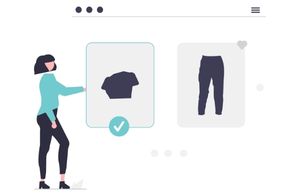Or go to our Shopify Theme Detector directly
Is Dropshipping Legal?
Last modified: April 29, 2024

There are concerns among people who are new to the e-commerce world that dropshipping is not a legal way to sell online. So let’s look at some concerns and ask, is dropshipping legal?
| # | Name | Image | |
|---|---|---|---|
| 1 |

|
AutoDS
|
|
| 2 |
|
Spocket-World Wide Suppliers
|
|
| 3 |

|
Syncee - Global Dropshipping
|
|
| 4 |

|
Printful-Sell Printed and Embroidered Items
|
|
| 5 |

|
Sup Dropshipping
|
|
| 6 |

|
DSers-AliExpress Dropshipping
|
|
| 7 |

|
Zendrop - Dropshipping & POD
|
|
| 8 |

|
Dropshipman: Dropshipping & POD
|
|
| 9 |

|
AO - AliExpress Dropshipping by FireApps
|
|
| 10 |

|
Trendsi - Fashion Dropshipping
|
|
| 11 |

|
CJdropshipping
|
|
| 12 |

|
DropCommerce
|
|
| 13 |

|
Modalyst-Sell Brand Name Products
|
|
| 14 |

|
Ali Orders-Fulfill Orders Easily
|
|
| 15 |

|
Blanka - Private Label Beauty
|
|
| 16 |

|
Dropified-Automate Your Dropshipping Business
|
|
| 17 |

|
ProductPro
|
|
| 18 |

|
Spreadr App
|
|
| 19 |

|
Importify
|
|
| 20 |

|
Inventory Source
|
|
| 21 |

|
Roxie
|
|
| 22 |

|
Fulfillbot: Dropshipping Agent
|
|
| 23 |

|
KakaClo
|
|
| 24 |

|
Oberlo-Get the Best Produtcts for Your Site
|
|
|
Show More
|
|||
1. Buyers Don’t Know the Selling Brand
In short, this one details that customers don’t know who the merchant is as they’re hidden behind the buyer. This is a genuine concern as there are laws about knowing who the customer is buying a product from. However, in dropshipping programs, the seller is the one responsible for all problems that the customer has.
This means that if the customer’s order is damaged, needs to be returned or something else, it is the seller and not the merchant who is responsible. Now some merchants will give guarantees, however, these will still have to be managed by the seller, not the merchant.
2. Taxes for Products from Merchant’s Country
Some people are concerned about the import or other taxes that might need to be paid when products are shipped from far away. This can be true in some circumstances, and you can be worried about this, but these taxes can be included within the price of the product or as an additional cost within the checkout operation.
3. Products Don’t Meet Safety Laws
Many companies around the world will use the same set of standard safety checks to ensure that products comply with local regulations. If you’re worried about a product that can be sold on your website, there are two options. The first is that you don’t sell it. The other is that you buy one and send it for testing to get it regulated. This can be expensive, but if you’re the only one selling a good product, then the potential revenue can be worth it.
4. Returns/Replacements
The returns and replacement rules for all dropshipping companies must meet the expectations of the customer’s state/country. This is no different from other businesses. If you’re unsure of your legal obligations in an area, consult a lawyer or restrict access to that area from your website.
Understanding Dropshipping Legality and Best Practices
Legal Foundations of Dropshipping
Dropshipping is a legal e-commerce model, but it’s crucial to understand and comply with relevant laws.
This includes acquiring a business license, paying taxes, and ensuring your products meet safety and quality standards.
Adhering to these legal requirements is essential for operating a legitimate and successful dropshipping business.
Building Trust and Ethical Practices
Ethical considerations are vital in dropshipping. Focus on transparent marketing, accurate product descriptions, and reliable customer service.
Establish clear return policies and ensure your marketing materials are truthful. This approach not only builds trust with your customers but also enhances your brand’s reputation and longevity in the market.
Supplier and Product Selection
Choosing the right suppliers and products is critical. Avoid selling counterfeit or restricted items, as this can lead to legal issues. Partner with reputable suppliers to ensure product quality and reliability.
This step is crucial for maintaining customer satisfaction and avoiding legal complications related to product safety and authenticity.
Dropshipping on Various Platforms
Dropshipping on Amazon
Dropshipping on Amazon is legal, but it’s important to follow Amazon’s specific rules and guidelines. Understanding and complying with these requirements is key to successfully dropshipping on Amazon.
This includes adhering to their seller agreement, ensuring product authenticity, and providing excellent customer service.
Dropshipping in Different Countries
The legality of dropshipping varies by country, and it’s essential to understand the specific laws and regulations in each market you operate in.
This includes business registration, tax compliance, consumer protection laws, and adherence to intellectual property rights.
Tailoring your business practices to each market’s legal framework is essential for global success.
Dropshipping and E-commerce Platforms
When using e-commerce platforms for dropshipping, ensure compliance with their policies and guidelines.
This includes setting up proper tax calculations, creating transparent shipping policies, and using secure payment gateways.
Adhering to platform-specific rules enhances your credibility and ensures a smooth operation of your dropshipping business.
Conclusion: Is Dropshipping Legal?
Is dropshipping legal? Yes, but there are still laws and regulations that you’ve got to follow to ensure that you’ve got the best business you can have. While there are concerns, listed above, these are often the result of a poor understanding of what dropshipping is and the responsibilities of all three parties.
*Make sure to check out our Shopify dropshipping apps roundup
Keep on reading about Dropshipping on Shopify. For example Is Dropshipping Worth it? and How to Make Money Dropshipping. Both part of our Shopify Dropshipping Apps and Shopify Dropshipping Themes lists. You can read more about Dropshipping on Shopify with our ultimate Dropshipping on Shopify guide.
-
Is it necessary to have a business license for dropshipping?
Yes, obtaining a business license is often required for dropshipping. This ensures your business operates legally and can also help in establishing trust with suppliers and customers.
-
Do I need to inform customers that I am dropshipping?
While not legally required, transparency about your dropshipping model can build trust. Informing customers can help manage their expectations regarding shipping times and product sourcing.
-
Is it legal to dropship branded products?
Dropshipping branded products is legal if you have permission from the brand owner. Selling counterfeit or unauthorized branded products can lead to legal issues and damage your business reputation.




 PageFly Landing Page Builder
PageFly Landing Page Builder  Shopify
Shopify  SEMrush
SEMrush  Website Maintenance
Website Maintenance  UpPromote
UpPromote